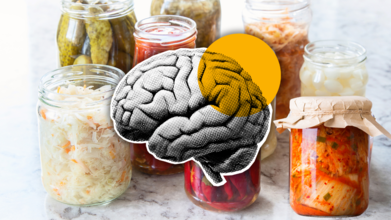- Health Conditions A-Z
- Health & Wellness
- Nutrition
- Fitness
- Health News
- Ayurveda
- Videos
- Medicine A-Z
- Parenting
- Web Stories
Drink This on an Empty Stomach Every Morning for Faster Weight Loss and Better Digestion

(Credit-Canva)
Ever wondered if a simple change could make a big difference in your morning routine? While many of us reach for a cold glass of water or a hot cup of coffee, a medical expert is suggesting something else entirely: a warm cup of water. According to Dr. Kunal Sood, this seemingly small habit could be the key to kickstarting your day with surprising health benefits. It's an unusual but easy change that might just be worth trying.
Benefits of Warm Water
Dr. Sood points to three main reasons why starting your day with warm water on an empty stomach is a good idea. The first is that it can improve digestion. The theory is that warm water helps break down foods that your body might struggle with, making them easier to process. It may even help with constipation, as a 2016 study found that water heated to body temperature has a positive effect on bowel movements. This simple morning habit can help get your digestive system moving and prepare your body for the day ahead.
Aids Weight Loss
Another benefit of this simple habit is that it can help with weight loss. When you drink warm water, your body has to use energy to bring it down to your normal body temperature. This process gives your metabolism a slight, temporary boost. While it's a small change, that minor increase in your metabolic rate can help you burn a few extra calories over time. It's a simple, low-effort way to support your body's natural calorie-burning process, especially if you're trying to lose a little weight.
Boosts Blood Flow
Drinking warm water can also help improve your blood flow. The warmth causes your blood vessels to dilate, or widen. This widening effect allows blood to flow more easily throughout your body. Better circulation means oxygen and nutrients can be delivered more efficiently to your organs and muscles, which can make you feel more energized and ready to take on the day. It's a quick way to give your entire circulatory system a gentle and healthy boost.
What Happens When You Drink Cold Water?
Drinking cold water can actually make it harder for your body to do its job. It causes your blood vessels to shrink, which slows down digestion and makes it more difficult for your body to absorb water. Instead of focusing on getting nutrients from your food, your body has to work harder just to keep its temperature stable. This can cause you to lose water and feel less hydrated.
When you drink cold water right after eating, your body might create extra mucus. This could potentially weaken your immune system, making you more likely to catch a cold or other illnesses. For better digestion and hydration, it's often better to choose water at room temperature.
Some Precautions You Should Take Before Drinking Hot Water
Dr. Sood gives one final, very important piece of advice: make sure the water isn't too hot. It's crucial to be careful and check the temperature before you drink. You want the water to be comfortably warm, not scalding hot. Taking a moment to test it will prevent you from accidentally burning your mouth or throat. The goal is to make this a soothing, beneficial habit, not a painful one.
Alia Bhatt Swears By Dal-Chawal, Not Salads: The Desi Vegan Diet That Could Transform Your Health

(Credit- Alia Bhatt/Instagram)
From her debut in ‘Student of the Year’, to her latest movie adventures like ‘Jigra’, Alia Bhatt is one of the most versatile actors in Bollywood and is well-liked celebrities in India. In an ‘Aap Ki Adalat’ interview a few years ago Bhatt revealed that one of the major components of her diet is no sugar.
She expressed how she needed a variety of dishes, calling herself full ‘desi’. Another surprising thing she revealed was that she didn’t understand or like salads and prefers ‘Daal Chawal’ which is rice and lentil soup filled with whole grains and vegetables. She also mentioned that her choice of breads was roti made with ragi grains, jawar and other millets.
Is Rice And Lentil Soup A Weight Loss?
Although people expect Bollywood starlets to enjoy rich and nutritious salads, Alia Bhatt’s refreshingly desi home diet bring about the discussion of whether one needs diet food or just needs to understand their nutritional needs better. Dal and rice are a perfect combination of carbohydrates, protein, and essential nutrients. To get the most nutritional benefit from this classic pairing, it's a good idea to make a few simple tweaks.
- Don't just rely on white rice. Try incorporating whole-grain varieties like brown, red, or black rice into your meals to add more fiber and antioxidants.
- Add vegetables, herbs, and spices to your dal to make it more nutrient-rich.
- Mix peas or beans into your rice. They are full of fiber and antioxidants, which can help improve blood sugar, cholesterol, and blood pressure.
- Pair your meal with a side. Serving your dal-chawal with yogurt adds healthy bacteria for your gut, while a fresh salad provides more vitamins and fiber.
- Balance your plate. A simple way to eat mindfully is to follow a "MyPlate" approach. Fill half your plate with fruits and vegetables, and divide the other half between a protein (like meat or fish) and a grain (like white rice).
Why You Should Eat Ragi, Jawar And Other Millet Rotis
Instead of regular wheat rotis, try healthy grains like ragi and jowar. These millets are packed with nutrients that can do wonders for your health.
Ragi is an excellent source of calcium and iron, which are essential for strong bones and healthy blood. Its high fiber content also helps with digestion, weight management, and stable blood sugar.
Jowar is loaded with protein, fiber, and antioxidants. It's great for digestion, can help with weight loss, and also lowers cholesterol for a healthier heart.
A 2024 study in Frontiers in Nutrition journal explained that adding more millets to your diet is a smart decision as they contain a great mix of carbohydrates, protein, fat, and fiber. They have more essential amino acids than common cereals, and their protein is easier for the body to digest.
While millets have always been a staple food, recent studies are highlighting their impressive medicinal properties. Eating millets has been scientifically shown to help with:
- They have a type of starch that digests slowly, which prevents blood sugar spikes.
- Millets can help you feel full and satisfied, aiding in weight loss.
- Regular consumption can reduce the risk of heart disease.
- Millets are naturally gluten-free, making them an ideal food for people with celiac disease.
Is A Sugar-Free Diet Actually Healthy?
Cutting out added sugar and focusing on whole foods can have a great impact on your health. It can help you manage your weight, lead to clearer skin, and improve your mood. It also helps reduce inflammation and lowers your risk of developing type 2 diabetes.
However, it's important not to confuse added sugars with the natural sugars found in fruits. Fruits provide essential nutrients like fiber and antioxidants. You can still have a very healthy diet by including whole fruits.
Remember, a no-sugar diet isn't a magic fix for weight loss. It's just one part of a healthy lifestyle that should also include exercise and a balanced diet. If you're thinking about making a big change to your diet, it's a good idea to talk to a doctor or dietitian first.
Sadhguru Says These 4 Foods Are Like Slow Poison For Your Body

Credits: Canva
Good health isn’t just about eating the right foods, it’s also about knowing what to avoid. Spiritual leader, Sadhguru, often emphasizes that certain foods we consume every day can silently harm our bodies over time. He calls them “enemies of health” and advises limiting or completely avoiding them.
Refined Sugar
According to Sadhguru, sugar as we consume it today is not the same as what our ancestors ate. Traditionally, sweeteners came from natural sources like jaggery or unrefined sugarcane juice. Modern white sugar, however, is highly processed and stripped of vitamins and minerals, leaving behind only “empty calories.”
Also Read: International Fetal Alcohol Syndrome Day 2025: Themes, Significance And History
Excessive sugar intake has been linked to obesity, diabetes, and heart disease. Sadhguru points out that it not only adds to weight gain but also weakens the immune system and disrupts the body’s natural balance. Choosing natural sweeteners like jaggery, honey, or fruits can be a healthier alternative.
However, Dr Palaniappan, who runs his YouTube channel under the name Dr Pal, a gastroenterologist says that jaggery or sugar do not really have that much of a difference. He explains that while 2 teaspoon of sugar have 8 grams of carbs, 2 teaspoon of jaggery have 6 grams of carbs. The difference is not that much, if your carbohydrate consumption is 200 grams per day. However, he does note that jaggery has a lower sugar spike.
Milk
While milk is often marketed as a superfood, Sadhguru suggests that most adults are unable to digest it properly. Many people lack the enzymes required to break down lactose, which can lead to bloating, mucus formation, and lethargy.
Although milk is a good source of calcium, Sadhguru recommends relying on other calcium-rich foods such as leafy greens, sesame seeds, ragi (finger millet), and nuts. Limited milk consumption is fine for those who tolerate it, but he advises against making it a daily habit for everyone.
The Physicians Committee for Responsible Medicine quotes Harvard Study that followed 72,000 women for two decades and found no evidence that drinking milk can prevent bone fractures or osteoporosis. The conclusion was milk does not necessarily build the strongest bones, though this is not to say that it has no nutrients. In fact, an estimated of 65% of the global population is lactose intolerant, majority of whom are from Asia.
Also Read: Kissing Bugs Disease Could Soon Become An Endemic, Says CDC
Refined Grains
Modern refining processes remove the outer bran and germ from grains, leaving only the starchy endosperm. This process makes the grains last longer on shelves but takes away most of the fiber, vitamins, and minerals. As a result, refined grains like white rice and maida (white flour) provide little nutrition and cause rapid spikes in blood sugar.
Sadhguru encourages the consumption of whole grains such as brown rice, millets, and whole wheat to promote better digestion, sustained energy, and improved gut health.
Tea and Coffee
Tea and coffee may be morning essentials for many, but Sadhguru cautions against their overuse. These beverages act as nervous stimulants, giving a quick burst of energy but leaving the body more tired later. Habitual consumption can lead to dependency, sleep disturbances, and heightened stress levels.
He recommends gradually reducing intake and replacing these drinks with herbal teas, fresh juices, or simply water to maintain natural energy levels throughout the day.
From Sauerkraut To Kombucha: How Fermented Foods Could Influence Neurotransmitters, Boost Mood And Reduce Anxiety

Credits: Health and me
Fermented foods have long been a staple across cultures for centuries, India's curd and pickles, sauerkraut of Europe, and kimchi of Korea. They are not only a matter of tradition and taste, but increasingly a solution to gut health, immunity, and wellness. Emerging science suggests they could quite possibly unlock improved mental health, influence neurotransmitters, and soothe anxiety and depression.
Fermentation is a natural process by which microorganisms such as yeast or bacteria break down complex food molecules. Not only is it self-preserving for foods, but it also enhances their nutritional content. As foods ferment, they release short-chain fatty acids that help digest food and nourish cells in the intestines. The process also makes the nutrients more accessible, producing B-vitamins, vitamin K2, bioactive peptides, and organic compounds like lactic and acetic acid. Enzymes developed during fermentation assist in the breakdown of carbohydrates, protein, and fat, and retard anti-nutrients such as phytates and oxalates facilitating mineral absorption such as iron, zinc, calcium, and magnesium.
Fermented foods typically contain live microbes, probiotics such as Lactobacillus and Bifidobacterium. Even if the microbes are killed, their waste, which are called postbiotics, retain the capacity to achieve health benefits.
The mantra "a healthy gut equals a healthy you" never rang more true. Fermented foods deliver beneficial bacteria that rebalance microbes, combat harmful microbes, and support digestion. Live-culture ferments provide metabolites in the form of short-chain fatty acids, bacteriocins, and organic acids that push out pathogens, lower gut pH, and promote good bacteria.
Fermentation also predigests carbohydrates and complex proteins, tenderizing food on the digestive tract. Enzymes in fermented milk help lactase-deficient individuals digest milk products easily. Additionally, the breakdown of antinutrients improves mineral absorption—a critical advantage over vegetarian diets.
How Fermented Foods Boosts Immunity?
A healthy immune system starts in the gut. By providing support for probiotic gut bacteria, fermented foods are able to modulate immune function, improve gut-barrier integrity, and cause regulatory T-cell responses that control inflammation. Yogurt, kefir, and fermented cereals stabilize intestinal flora, which can indirectly improve overall immunity and protect the body from infection.
What Is The Gut-Brain Axis?
Your gut and brain are in constant communication through what is known as the gut-brain axis. This "highway" connects the gut and central nervous system by nerves, hormones, and immune signals. A balanced gut microbiome can soothe inflammation, regulate neurotransmitter production, and influence mood and thought. An imbalanced gut, however, can contribute to depression, anxiety, and cognitive decline.
Research more and more points towards fermented foods to be the key players in this regard. Research in EMBO Molecular Medicine identified probiotic-rich fermented foods to reduce depression and anxiety. In a mice study, mice with probiotics from fermented foods showed less stress and anxiety-like behaviors. The mechanism is through modulation of neurotransmitters such as gamma-aminobutyric acid (GABA), which controls nerve activity in the amygdala area of the brain—the brain region responsible for fear and emotion.
How Fermented Foods Influence Neurotransmitters?
The gut microbiome has a direct influence on the production of neurotransmitters. Nearly 95% of the neurotransmitter serotonin, the "feel-good" one, is produced in the gut. The probiotics in fermented foods can influence serotonin and other neurotransmitters like dopamine and GABA, which have a direct influence on mood, anxiety, and sleep. In essence, what you eat can influence how you feel directly.
Benefits for Specific Health Conditions
Fermented foods are helpful in an array of conditions:
Gastrointestinal illnesses: Yogurt, kefir, and curd rice can restore intestinal balance with antibiotic therapy or occasional IBS.
Lactose intolerance: Cultured milk is more easily digested.
Mineral deficiency: Fermented legumes and cereals increase iron and zinc bioavailability.
Oral and vaginal health: Food containing lactobacillus might maintain healthy bacterial counts.
However, fermented foods must be eaten under careful circumstances: immunocompromised people, histamine intolerance, active SIBO, or hypertensive patients have to hold back on aged or high-sodium ferments. Pregnant women should opt for clean, pasteurized sources to play it safe.
Tips to Eat Fermented Foods Effectively To Reap Mental Health Rewards
For best mood-boosting effects of fermented foods, choose products with live and active cultures. Pasteurized products have zero live probiotics and therefore are less effective. Notably, fermented alcoholic beverages like beer or wine do not have the same probiotic effects.
Yogurt and Kefir: Both have Lactobacillus and Bifidobacterium, linked to reduced anxiety and depression.
Kimchi and Sauerkraut: Rich in lactic acid and prebiotic fibers to nourish beneficial bacteria.
Miso and Tempeh: Provide brain-benefiting probiotics and amino acids that assist with mental health.
Steer clear of excessive sodium and sugar, since excessive intake can disrupt gut microbiome balance and eliminate the benefits.
What Is Nutritional Psychiatry?
Nutritional psychiatry encourages paying attention to food's impact on mood. A convenient technique is a two-to-three-week trial period of a "clean" diet free from processed foods and sugar and tracking changes in body and mind. Gradual reintroduction of foods allows you to identify the foods that enhance or hamper your mood, showing the strong link between diet, gut microbiome, and mental health.
While fermented foods contain strong benefits, moderation is the key. Bloating, gas, or an upset stomach can happen in a few individuals if they overindulge. For most individuals, incorporating a variety of fermented foods in a total balanced diet is the best means to get both gut and brain reward.
Fermented foods are more than a culinary or cultural trend—potentially, they are a gateway between gut health, diet, and mental wellness. By affecting neurotransmitters, supporting gut microbiota, and enhancing nutrient absorption, fermented foods offer tangible value to mood regulation, anxiety alleviation, and overall health. Incorporating live-culture ferments like yogurt, kefir, kimchi, and miso into your daily regimen might be an easy yet potent way to improve both brain and body.
© 2024 Bennett, Coleman & Company Limited

